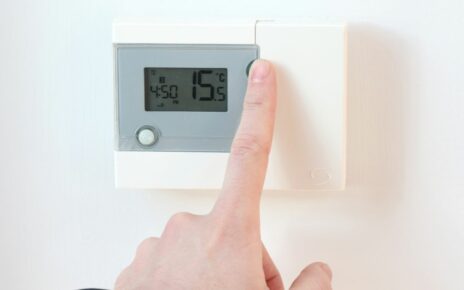EATING too much salt can be dangerous — but not everyone knows how to tell if they’ve had their fill.
Over-seasoning your food can increase your risk of high blood pressure, and there are a range of tell-tale signs you’ve had too much of the condiment.
One subtle symptom is swelling in your hands and feet.
Salt increases how much water you retain in your body, which can cause oedema — the medical term for swelling in the ankles, feet and legs.
While swelling can often go away on its own, it can be a sign of something serious if it does not get better in a few days, according to the NHS.
Olivia Burley, a nutritionist on the NHS Diabetes Prevention Programme, told MailOnline: “When too much salt is consumed, the body retains the extra sodium and increases the fluid outside of the cells.
Read more on salt

The 10 hidden salt traps lurking in your favourite foods – & what to try instead

Warning as sliced bread contains MORE salt than McDonald's fries
“This causes the kidneys to have reduced function, remove less water and therefore increase blood pressure.”
You are considered to have high blood pressure — known medically as hypertension — if your reading is 140/90mmHg or more when taken by a doctor.
It can increase your risks of heart disease, heart attacks and stroke, as well as aneurysms, kidney disease and dementia.
The condition causes around 75,000 deaths a year and is known to affect at least one in three Brits.
Most read in Health

From exercise to meditation, eight ways to boost your immune system this winter

Crippling arthritis to agonising foot pain – Dr Jeff answers health questions

Little-known sign of heart disease you might spot in your feet & 5 signs to know

Tell the difference between a rash & little-known sign of killer skin cancer
However, many more could be living with it unawares, with Blood Pressure UK warning 63 per cent of UK under-50s don’t know what their blood pressure numbers are.
Eating too much salt is one of the key causes of the condition.
Guidelines suggest adults should not have more than 6g a day, but most Brits have around 8.1g daily, according to Action On Salt.
Most of this salt doesn’t come from adding pinches at meals, but is hidden in ingredients of pre-made foods like bread and sauces, Blood Pressure UK says.
This can cause swelling in the hands or feet around a day after eating high-salt foods, experts say.
A study, published in Neurourology and Urodynamics, showed eating too much salt every day is linked to leg swelling in elderly men.
Pippa Hill, nutritionist at the Weight Loss Guru, told MailOnline: “This isn't an instant response after eating, but if in the next 24 hours of having eaten salty foods you notice swelling in these areas, it could be a link.”
If the swelling doesn't go after a few days, it could be a sign you need to go to a doctor.
Read More on The Sun

I’m a size 16 gypsy – people are always so shocked that I’m 'pretty AND fat'

'Hawaii of Europe' hols isle with summer all year & no UK time difference
The NHS says you should ask for an urgent GP appointment if you have swelling in just one ankle, foot or leg and there is no obvious cause like an injury.
You should also ask for one if the swelling is severe, painful, red or hot to the touch, or if you have diabetes or a high temperature.
Source: Read Full Article



